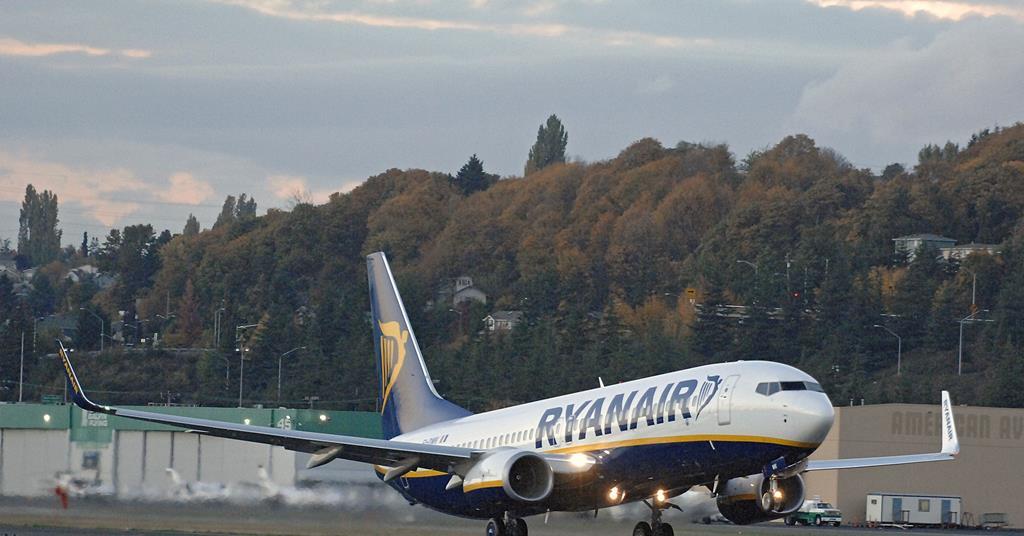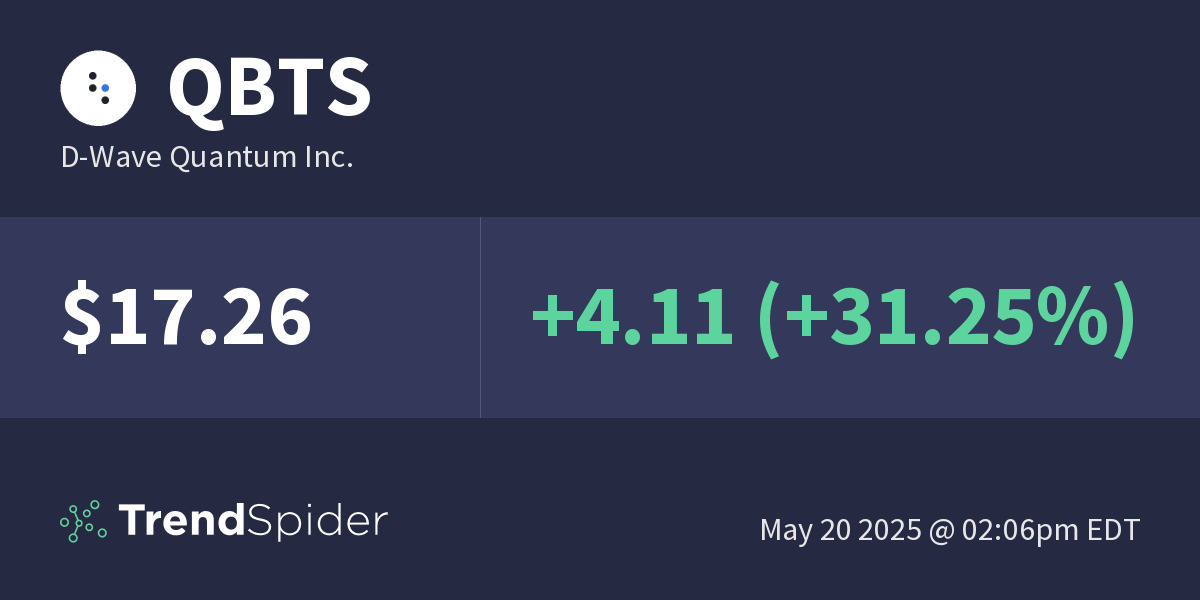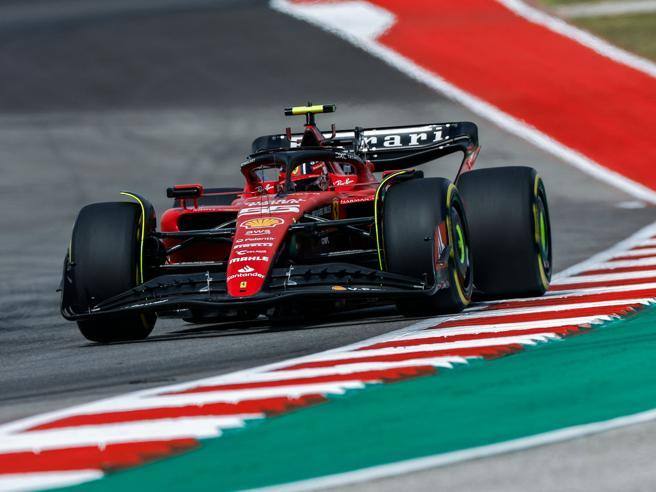Ryanair Faces Tariff War Headwinds; Stock Buyback To Offset Growth Challenges

Table of Contents
The Impact of Tariff Wars on Ryanair's Operations
The ongoing global trade tensions and resulting tariff wars are significantly impacting Ryanair's operations in several key areas.
Increased Fuel Costs and their Effect on Profitability
One of the most immediate impacts is the increase in fuel costs. Tariffs on imported fuel directly translate into higher operational expenses for Ryanair. While precise figures fluctuate, reports suggest a significant percentage increase in fuel costs year-over-year, directly impacting profit margins. This increase necessitates a careful consideration of whether to absorb these costs or pass them on to consumers through higher ticket prices, a move that could affect competitiveness. Ryanair, like other airlines, likely employs hedging strategies to mitigate some of this fuel price volatility, but the effectiveness of these strategies in the face of significant tariff increases remains a critical factor in their overall profitability.
- Direct impact: Increased fuel costs eat into Ryanair's profit margins.
- Consumer impact: Potential for higher ticket prices to offset increased fuel costs.
- Mitigation strategies: Hedging strategies are in place, but their effectiveness under current circumstances remains to be seen.
Disruptions to Flight Routes and Scheduling
Trade disputes can also lead to disruptions in flight routes and scheduling. Geopolitical tensions stemming from tariff wars might impact access to specific airspace or create unforeseen delays and cancellations. This can lead to decreased operational efficiency, increased customer dissatisfaction, and potential damage to Ryanair's brand image, which is built, in part, on its reputation for punctuality and cost-effectiveness.
- Airspace restrictions: Potential limitations on flight routes due to geopolitical tensions.
- Operational disruptions: Increased likelihood of delays and cancellations.
- Reputational risk: Negative impact on customer satisfaction and brand perception.
Competition and Market Share Implications
The challenges posed by tariff wars don't exist in a vacuum. Ryanair's competitors are also affected, but the impact may vary. Some competitors might be better positioned to absorb increased costs or adapt to route disruptions, potentially shifting the competitive landscape. This necessitates a thorough analysis of how these tariff-related challenges impact Ryanair's competitive advantage and its ability to maintain or grow its market share in the long term.
- Competitive analysis: Evaluating the differential impact on Ryanair and its competitors.
- Market share implications: Assessing potential gains or losses in market dominance.
- Long-term outlook: Analyzing the enduring effects on Ryanair's market position.
Ryanair's Stock Buyback Program: A Strategic Response
Facing these headwinds, Ryanair has announced a significant stock buyback program. This is a strategic response designed to address the challenges and bolster shareholder confidence.
The Rationale Behind the Buyback
The buyback program signals Ryanair's belief in its long-term prospects despite current challenges. By reducing the number of outstanding shares, the company aims to potentially increase earnings per share (EPS), thereby enhancing the value proposition for remaining shareholders. This is a vote of confidence in their ability to navigate the current turbulence and emerge stronger.
- Share reduction: Lowering the number of outstanding shares.
- EPS increase: Potentially boosting earnings per share.
- Confidence signal: Demonstrating belief in long-term prospects.
Impact of the Buyback on Shareholder Value
The buyback program is intended to directly benefit existing shareholders by potentially increasing the value of their holdings. The market reaction to the announcement will be a key indicator of investor confidence in this strategy. However, there are potential risks, including the possibility that the funds used for the buyback could have been invested in other growth opportunities.
- Increased share value: The potential for increased share price due to the buyback.
- Market reaction: Assessing investor sentiment post-announcement.
- Opportunity cost: Evaluating potential alternative uses of the capital.
Alternative Strategies Considered (or rejected)
Ryanair likely considered alternative strategies to mitigate the impact of tariff wars. These could have included aggressive cost-cutting measures, expansion into new, less-affected markets, or increased investment in fuel-efficient aircraft. The choice of a stock buyback suggests that the company believes this is the most effective way to deliver value to shareholders in the current context.
- Cost-cutting: Potential reductions in operating expenses.
- Market diversification: Expanding into new geographical areas.
- Fleet modernization: Investing in more fuel-efficient planes.
Analyzing Ryanair's Long-Term Prospects in a Challenging Market
Ryanair's future performance depends on several factors, both challenging and opportunistic.
Factors Contributing to Future Growth or Decline
The global economic climate, further escalation of tariff wars, and increased competition all pose potential challenges. However, opportunities exist through expansion into new markets, strategic partnerships, and investment in new technologies. The overall outlook hinges on Ryanair's ability to adapt and innovate in a volatile environment.
- Economic outlook: The overall health of the global and European economies.
- Tariff escalation: The potential for further increases in tariffs.
- Growth opportunities: Expansion into new markets and technological advancements.
Investor Sentiment and Market Predictions
Analyst predictions for Ryanair's stock price vary, reflecting the uncertainty surrounding the ongoing tariff wars and their long-term impact. However, the stock buyback program appears to be a significant factor in shaping investor sentiment, providing a degree of reassurance in the face of significant external challenges. Monitoring these predictions closely is crucial for understanding the ongoing market perception of Ryanair's strategy.
- Analyst forecasts: Gathering and analyzing various expert opinions.
- Investor sentiment: Tracking the confidence level of investors.
Conclusion: Navigating the Headwinds - Ryanair's Path Forward
Ryanair is facing significant headwinds due to escalating tariff wars, leading to increased fuel costs and operational disruptions. The company's strategic response, a substantial stock buyback program, aims to offset these challenges and reinforce shareholder value. While the long-term impact of these tariff wars remains uncertain, Ryanair's ability to adapt and innovate will determine its future success. Stay informed on Ryanair's progress in overcoming these Ryanair tariff war headwinds and learn more about its future strategies by following our regular updates on Ryanair stock and its response to economic pressures.

Featured Posts
-
 Tyazheloe Polozhenie Shumakhera Drug Podelilsya Trevozhnymi Podrobnostyami
May 20, 2025
Tyazheloe Polozhenie Shumakhera Drug Podelilsya Trevozhnymi Podrobnostyami
May 20, 2025 -
 Cas De Maltraitance Et D Abus Sexuels Presumes A La Fieldview Care Home Informations Et Details
May 20, 2025
Cas De Maltraitance Et D Abus Sexuels Presumes A La Fieldview Care Home Informations Et Details
May 20, 2025 -
 D Wave Quantum Qbts Stock Mondays Market Activity Explained
May 20, 2025
D Wave Quantum Qbts Stock Mondays Market Activity Explained
May 20, 2025 -
 Hamilton Och Leclerc Diskvalificerade F1 Kaoset Fortsaetter
May 20, 2025
Hamilton Och Leclerc Diskvalificerade F1 Kaoset Fortsaetter
May 20, 2025 -
 Matheus Cunha And Man Utd A Journalists Worrying Report
May 20, 2025
Matheus Cunha And Man Utd A Journalists Worrying Report
May 20, 2025
